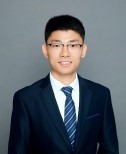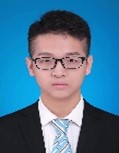Special Session 8
Flexible and Secure Operation of Multi-scenario Integrated Energy System Coupled with Electricity and Hydrogen
As the global energy transition accelerates and the demand for environmental protection surges, the share of renewable energy in the energy mix has been on the rise. However, its intermittent and fluctuating attributes pose challenges to the stable operation of the energy system. In urban and oceanic contexts, energy demands are diverse and intricate, beyond the reach of traditional energy supply means. Thus, the research on coupling electrohydrogen to multi-scenario integrated energy systems (covering urban and oceanic areas) has emerged. The significance of this lies in that, by leveraging the electrohydrogen coupling technology, the fluctuations of renewable energy can be effectively mitigated, enhancing the efficiency of energy utilization. For example, in cities, it can address the energy needs of various users, and in the ocean, it can tackle the energy supply issues on islands. This not only fortifies the flexibility and security of the energy system but also drives the sustainable development of energy, cuts carbon emissions, spurs the optimization and upgrading of the energy structure, and ensures a stable and reliable energy supply. It plays a pivotal role in realizing the efficient global use of energy and the pursuit of green development, and holds a critical position in achieving the effective utilization of global energy and the realization of green development objectives. Suggested topics include, but are not limited to:1. Ocean and urban integrated energy systems modeling, operation and trading
2. Ocean and urban integrated energy systems flexible potential characterization and management
3. Ocean and urban integrated energy systems security and resilience
4. Ocean and urban integrated energy systems carbon emissions assessment and mitigation
5. Ocean and urban integrated energy systems data-driven analysis and applications
Chairs:

Assistant Researcher Xingtang He, Tianjin University, China
Xingtang He is currently an assistant researcher with the Key Laboratory of Smart Grid, Ministry of Education, Department of Electrical Engineering, Tianjin University. My research interests include flexible domain characterization and optimal operation of island/urban integrated energy systems, frequency control and energy management of microgrids, and deep reinforcement learning applied for novel power systems. Since 2024, I have been a postdoctoral researcher at Tianjin University. I have published more than 25 academic papers, served as a guest editor for special issues of international journals and a reviewer for several prestigious academic journals. I have participated in a number of projects, including the National Key Research and Development Program and the National Natural Science Foundation of China.

Assoc. Prof. Xiaolong Jin, Tianjin University, China
Xiaolong Jin is presently an associate professor with the Key Laboratory of Smart Grid of Ministry of Education, Department of Electrical Engineering, Tianjin University. His research interests include energy management of multi-energy buildings and their integrations with integrated energy systems, and the energy & flexibility markets solutions. From 2019 to 2022, he was a postdoc researcher with the Centre of Electric Power and Energy, Technical University of Denmark, Denmark. He has published more than 90 papers with over 3500 citations, including 2 ESI top 1% highly cited papers, and led several projects such as the projects of National Natural Science Foundation of China.

Assist. Prof. Qian Jiang, Guangxi University, China
Qian Jiang presently an assistant professor with Guangxi Key Laboratory of Power System Optimization and Energy Technology, Department of Electrical Engineering, Guangxi University. His research interests include optimal planning and operation of integrated community energy systems, local energy markets.
